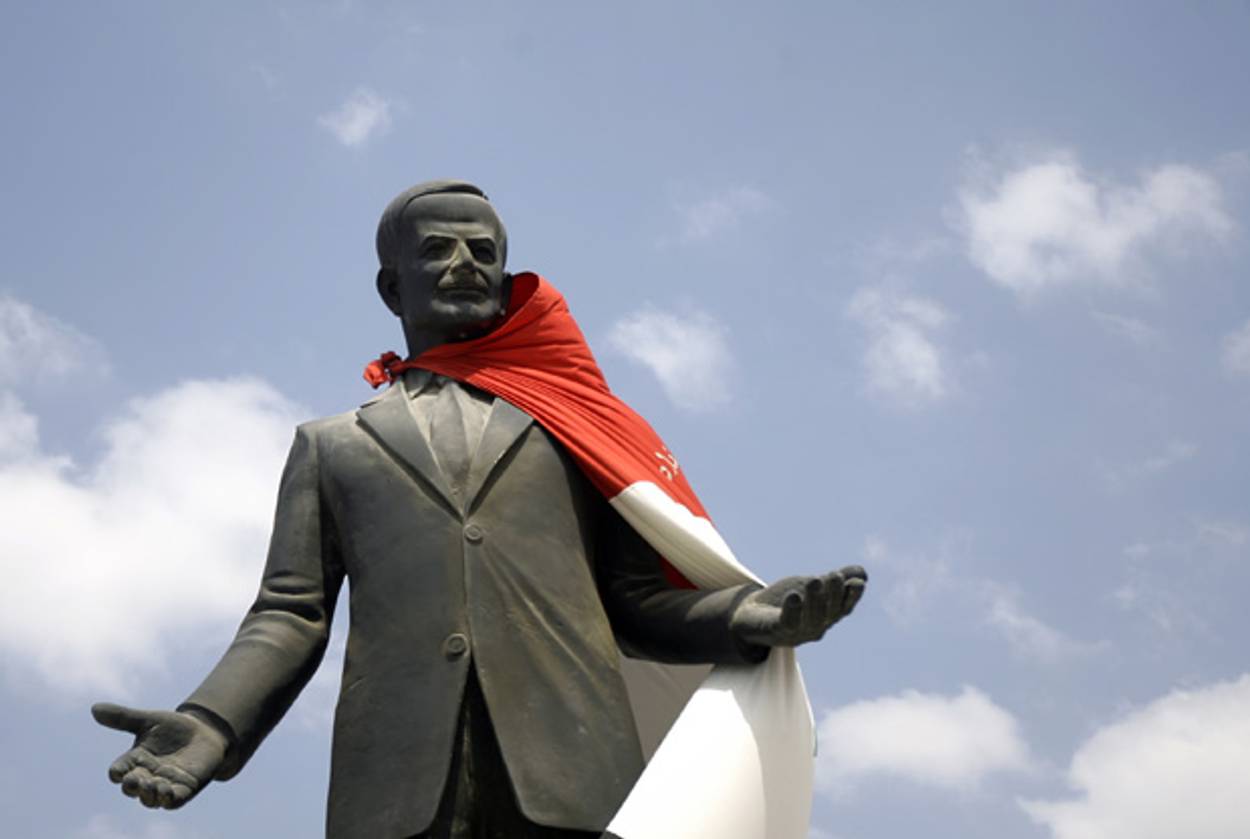Walls Closing In on Syrian Regime
Vetoed U.N. sanctions still betray which way the wind is blowing




After months and months of the same old attrition, things are beginning to move faster. Yesterday, Bashar Assad’s government revoked a ban it had imposed a week ago on the import of consumer goods—a sign that it recognized that high prices were agitating its people (along with all the killing and besieging, presumably) and, more important, that it is vulnerable to such agitation; the abruptness signals that the regime is still feeling its way toward regaining a full hold over the country.
Yesterday, European countries led by Germany, Britain, France, and Portugal—and backed by the United States, which has declared that Assad’s time is up—pushed for a U.N. Security Council resolution condemning the regime and threatening sanctions. It was, however, vetoed by China and Russia (“a rare double veto,” according to ace U.N. beat reporter Colum Lynch). Notably, the resolution had already been watered down, and would have been the first Security Council recognition of the Syrian strife. Also notable was U.S. ambassador Susan Rice’s impassioned response: “The United States is outraged that this council has utterly failed to address an urgent moral challenge and a growing threat to regional peace and security,” she said. And her Twitter feed lit up with indignation: “This is a sad day. Most especially for the people of #Syria, but also for the UN Security Council”; “The UN Security Council has just utterly failed to address the Asad regime’s brutality. #Syria”; “The people of #Syria, who seek nothing more than their universal human rights, have been slapped in the face”; “Those who opposed the resolution and gave cover to a brutal regime will have to answer to the Syrian people.” For a diplomat, this wasn’t very diplomatic—probably a good thing, given the circumstances.
Neighboring Turkey, a crucial player, has started military maneuvers near the Syrian border, surprising even the Obama administration (pleasantly), and has gone ahead with its own sanctions. Joe Lieberman, Independent of Connecticut, became the first senator to call for the imposition of a no-fly zone to protect civilians. All this in addition, of course, to Monday’s Senate confirmation of the heroic Robert Ford as ambassador to Syria, a sign that the U.S. will not be cowed by attacks and intimidation. So clearly is the direction in which things are moving that even neighboring Lebanon’s new prime minister, necessarily backed by Assad ally Hezbollah, carefully began to distance himself from the regime, saying, “I wish for the Syrian people what Syrians wish for themselves.” He isn’t alone.
Facing Backlash, Syria Revokes Week-Old Ban on Imports of Consumer Goods [NYT]
Russia and China Veto Security Council Resolution Condemning Syria [FP Turtle Bay]
Syria Warns U.S. Ambassador Against Meddling in Internal Affairs [AP/Haaretz]
Lebanon Premier Sees Risk From Damascus [WSJ]
Earlier: The Brave Man Robert Ford
Marc Tracy is a staff writer at The New Republic, and was previously a staff writer at Tablet. He tweets @marcatracy.